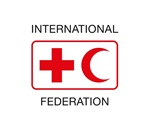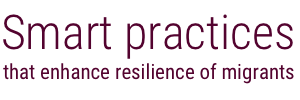These resource centres provide information, counselling, legal assistance and protective spaces for migrants, particularly labour migrants, both before and after their journeys. Vulnerabilities to exploitation and abuse are reduced as a consequence.
The International Labour Organization has established 21 migrant worker resource centres in countries of origin and in countries of destination in the Asia-Pacific region. The centres provide a range of protective services to migrants and potential migrants. The countries of origin are Cambodia, Lao People’s Democratic Republic, Myanmar, and Viet Nam, while the countries of destination are Malaysia and Thailand. The centres share accurate information and provide counselling on safe migration and rights at work; they also allow complaints to be made against recruitment agents and employers. Migrants are also provided legal assistance and access to justice, as well as support for rescue from exploitative situations. In countries of origin, most complaints received relate to non-deployment or non-fulfilment of contract terms by employers or recruiting agencies, and to loss of contact by family members with migrants in destination countries. In countries of destination, the resource centres usually provide support in the recovery of unpaid wages and in accessing compensation for accidents suffered at work. Additionally, migrants can receive assistance in settling grievances at the resource centres at both ends of the migration process, and some cases have been pursued through the legal system. Several cases raised by service providers in Cambodia or Viet Nam have been resolved through consultation with service providers in Thailand and Malaysia. In Viet Nam, the resource centres also store copies of migrants’ contracts and passport details as a record in case of problems at the destination workplace. Resource centre staff also work together with local authorities to prevent and resolve problems.
Since 2012, the centres have assisted over 60,000 beneficiaries. Impact: 2 million US dollars in compensation has been awarded; 89 per cent of beneficiaries who have migrate based their decision on counselling.
Design. [P1] Focuses on reducing the vulnerabilities of labour migrants. [P3] Supports migrants’ aspirations to work abroad. [P4] Protects migrants from exploitation.
Implementation. [P7] Centres along the migratory trail work together.
- Discriminatory attitudes to migration of women.
- Limited trust in government services among potential migrants in some countries.
- Need for gender-responsive support services for migrants.
- Value of compensation as a tool for combatting exploitation.
- Importance of building the capacity of service providers to monitor and evaluate and measure outcomes.
Smart practices
Smart practices report and database survey
About the report
People migrate in pursuit of a better life for themselves and their families. As described in the International Federation of Red Cross and Red Crescent Societies’ (IFRC) Policy on Migration, “migrants are persons who leave or flee their habitual residence to go to new places – usually abroad – to seek opportunities or safer and better prospects.
Read more
About the International Federation

